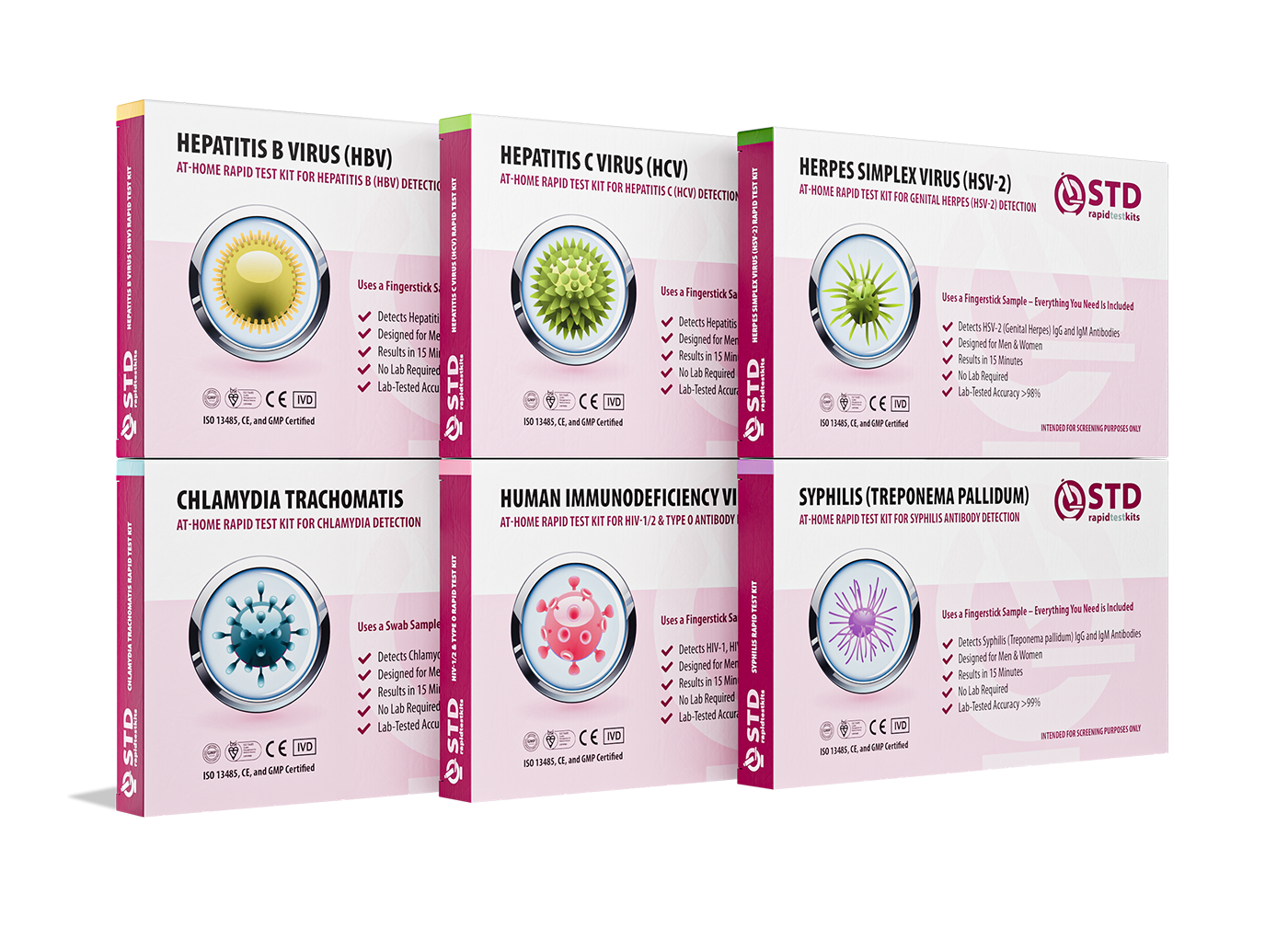Quick Answer: To tell someone you have an STD, speak calmly and clearly about your diagnosis, how you’re handling it, and what it means for them. Use “I” statements, share facts, not fears, and focus on care, not confession.
Why This Feels So Hard, And Why You’re Not Alone
Imagine this: Casey, 27, sat across from their partner at a diner two days after testing positive for chlamydia. They had practiced what to say in the mirror, even written it in a notes app. But the words got caught in their throat the moment their partner smiled and asked, “So, how was your day?”
Disclosure isn’t just a medical update, it feels like an emotional landmine. According to the CDC, over 1 in 5 people in the U.S. have an STI at any given time, and yet almost everyone feels like they’re the only one when it’s their turn to tell. The fear of ruining a connection, being seen differently, or facing blame can make even the most self-assured person freeze.
But here’s the truth: STD disclosure is not a death sentence for intimacy. When done thoughtfully, it can deepen trust, clarify boundaries, and even spark care-focused conversations most couples never have.
When Is the Right Time to Tell Someone You Have an STD?
If you’re asking that question, you’re already being thoughtful, and that’s a good sign. But let’s be clear: there’s no perfect moment, no script that will make this totally painless. There is, however, a better time and place.
Layla, 34, found out she had genital herpes a week before her third date with someone she was really into. “I didn’t want to kill the mood,” she said. “But I also didn’t want to wait until after we had sex. That would’ve felt like betrayal.” So she chose a quiet Sunday afternoon, outdoors, after sharing food. “It was calm. I needed that. I cried a little, but I didn’t break.”
There’s no universal rule, but these guiding principles help:
| Timing Scenario | Best Practice | Why It Matters |
|---|---|---|
| Before first sexual contact | Disclose before intimacy escalates | Builds trust, avoids feelings of betrayal |
| Ongoing relationship, new diagnosis | Tell them as soon as you’ve processed it | Shows responsibility, opens conversation |
| One-night stand or casual hookup | Text or call before contact, even anonymously if needed | Protects their health, avoids legal risks |
| Ex-partner, you just tested positive | Reach out with care, not blame | They may need to get tested ASAP |
Table 1. Common STD disclosure scenarios and why the right timing builds both safety and dignity.
“I Have Something to Tell You…” What to Say (And What Not To)
Let’s get into the words, because that’s where most people panic. You don’t need to explain your entire sexual history. You don’t need to cry, apologize for existing, or act like you’re contagious forever. You need to be honest, calm, and human.
Here’s a story that might sound familiar: Malik, 23, found out he had gonorrhea and needed to tell his new girlfriend. He tried to write it all in a text, then deleted it. He almost blurted it out on the phone, then hung up. Eventually, he said: “I care about you, and I need to be real about something that affects both of us. I tested positive for gonorrhea. I’ve started treatment, and I’m okay, but you should get tested too.”
It wasn’t perfect. She was shocked. But they stayed on the phone for 45 minutes. She got tested the next day. And they’re still together.
That’s what matters. The words don’t need to be polished, they just need to come from a place of care. Still, if you’re the kind of person who freezes under pressure, a few templates can help.

People are also reading: Got Risky? Here's How Fast You Can Test for HIV, Herpes, Chlamydia & More
Disclosure Scripts You Can Actually Use
Think of these as conversation starters, not rigid scripts. Choose one that fits your voice, or adapt it to sound more like you. The goal isn’t to confess. The goal is to inform, invite safety, and stay grounded in reality.
| Scenario | Sample Words |
|---|---|
| You just found out and haven’t had sex yet | "I want to be honest before we go any further." I got a positive test for [STD]. I can handle it, I'm getting help, and I wanted to tell you because I care about your safety. |
| You’ve already had sex and now have a diagnosis | “I just got tested, and my results came back positive for [STD]. I’m letting you know so you can take care of yourself too. I know this isn’t easy to hear, but I believe in being honest.” |
| You had a one-night stand and want to notify anonymously | “I recently tested positive for [STD], and there’s a chance you may have been exposed. I’m not reaching out to blame or shame, just to give you a heads-up to get tested.” |
| You’ve had the STD for a while and want to disclose before things get serious | “I’m living with [STD], and I manage it responsibly. It doesn’t define me, and I wanted to be open with you before we take things further.” |
Table 2. Realistic, trauma-informed scripts for different STD disclosure situations.
But What If They React Badly?
This might be the hardest fear to sit with: that the person you’re telling will lash out, ghost you, or look at you differently forever. And the truth is, sometimes they do. Not because you did something wrong, but because they’re scared or uninformed.
Jin, 30, told their ex they had tested positive for HPV. “He yelled at me. Said I ruined his life. I cried for days. Then I went back and reread what the CDC says: Most people will get HPV. Most never know it. And he was blaming me for something he probably had already.”
You cannot control how someone reacts. But you can control how you show up. With facts. With kindness. With courage. Their response is data. And if they meet your honesty with cruelty? That’s not your person.
This is the moment where you get to choose self-respect over self-erasure. You did something brave. And you’re not alone.
Check Your STD Status in Minutes
Test at Home with Remedium7-in-1 STD Test Kit

 For Men & Women
For Men & Women Results in Minutes
Results in Minutes No Lab Needed
No Lab Needed Private & Discreet
Private & DiscreetOrder Now $129.00 $343.00
For all 7 tests
After the Talk: What Happens Next (and How to Handle It)
The hardest part is over, but the echo still rings. After you disclose your status, you might feel raw, shaky, or even numb. That’s normal. Sometimes the other person is supportive right away. Sometimes they’re not. And sometimes, silence hangs heavier than any response.
Let’s go back to Casey. After their diner conversation, their partner was quiet. Not cold, but overwhelmed. “They said, ‘I need some time to think.’ I went home and cried for four hours straight.” But by the next morning, they had texted: “Thank you for telling me. I got tested today. Let’s talk more soon.”
Disclosure isn’t a one-and-done. It’s a beginning. Of more open communication. Of shared decisions. Of facing health realities together, or alone. What matters most is that you spoke truthfully. You protected them, even if it cost you comfort.
If you feel gutted afterward, remind yourself: Feelings aren’t facts. Panic doesn’t mean you did something wrong. The shame you feel right now is a scar left by stigma, not by your value as a person.
STD Disclosure and the Law: What You Need to Know
In some cases, not disclosing an STD can have legal consequences. But the law is murky, and varies widely by location and type of infection. In general, knowingly exposing someone to an STD without telling them, especially HIV, can lead to civil or criminal charges in some states or countries. But proving intent or transmission isn’t always straightforward.
Here’s the baseline: if you know you have an STD and there’s a risk of transmission, it’s ethically and often legally necessary to tell the person you’re about to sleep with. Full stop.
Still, nuance matters. If you’ve already completed treatment and are no longer infectious (as with chlamydia or gonorrhea), the conversation may shift toward medical history, not disclosure of current risk. If you’re living with a chronic but manageable condition like HSV or HPV, the laws tend to be less clear, but the ethical imperative remains.
When in doubt, a good rule of thumb is this: If the roles were reversed, would you want to know? If the answer is yes, then tell them.
Here’s a look at the broader spectrum of ethical and legal realities surrounding disclosure:
| STD | Disclosure Legally Required? | Transmission Risk Without Disclosure | Comments |
|---|---|---|---|
| HIV | Yes (in many jurisdictions) | High if untreated | Criminalized in some U.S. states and globally |
| Chlamydia | Not typically | High if untreated | Ethically expected to disclose to partners |
| Herpes (HSV) | Varies | Medium even when asymptomatic | Civil lawsuits have occurred |
| HPV | No | High exposure but often subclinical | Disclosure is recommended but not mandated |
Table 3. Legal and ethical landscape of STD disclosure in common infections. Always consult local health laws if unsure.
Am I a Terrible Person? No, You’re a Human Being
This is the emotional hangover many people don’t talk about. You did the right thing. You said the words. You gave someone else the chance to protect themselves. And yet, you feel disgusting. Ashamed. Like a danger instead of a person.
This spiral is familiar. It’s been reinforced by decades of sex-negative culture that treats STDs like moral failings instead of health issues. But here’s what’s real: getting an STD means you’re sexually active. It means you’re human. That’s it. Not dirty. Not broken. Not reckless.
Nadia, 21, broke down sobbing after telling her partner she had trichomoniasis. “He said it was fine. But I couldn’t stop crying. I felt like my body had betrayed me. Like no one would ever want me again.” Her therapist helped her realize she was grieving the myth that clean meant lovable. And now, she sees her diagnosis as something that showed her who was safe to love.
You are still worthy of touch, trust, and tenderness. An STD doesn’t erase that. And the courage it takes to tell someone? That’s not weakness. That’s your strength showing.

People are also reading: Think You Can Ride It Out? Here’s What Happens When STDs Go Untreated
Anonymous Partner Notification: Yes, It’s a Thing
If the idea of direct disclosure makes your stomach twist into a knot, especially with past partners, you’re not alone. Some clinics and health departments offer anonymous notification services where they’ll inform partners you’ve been diagnosed, without using your name.
This is especially useful if:
- You had multiple partners recently
- You don’t feel safe contacting someone directly
- You’re afraid of retaliation or judgment
Anonymous notification isn’t cowardice. It’s still care. It protects your partners without putting your mental health or safety at risk. According to the CDC’s partner services page, many jurisdictions offer this through public health clinics.
There are also online services, such as TellYourPartner.org, that let you send anonymous text or email notifications. These tools are there for a reason, to make disclosure possible even when conversation isn’t.
If They Leave, You Still Did the Right Thing
Let’s name the worst fear. What if they leave? What if they ghost you after you told the truth? What if your honesty costs you the relationship, the flirtation, the almost?
Then they were never your safest place to begin with.
That doesn’t make it less painful. But it makes it less about your worth and more about their readiness. Someone who leaves because you have an STD is someone who hasn’t done the work to understand sexual health, and they’re not ready to be a responsible partner, no matter how cute their smile is.
Sometimes disclosure clears the path for something better. For someone who says, “Thank you for trusting me.” For someone who asks questions, gets tested, and stays. That person exists. And you’ll be ready for them, because you’ve already practiced the kind of courage they’ll respect.
Check Your STD Status in Minutes
Test at Home with Remedium6-in-1 STD Test Kit

 For Men & Women
For Men & Women Results in Minutes
Results in Minutes No Lab Needed
No Lab Needed Private & Discreet
Private & DiscreetOrder Now $119.00 $294.00
For all 6 tests
What About Intimacy Now?
So, you told them. And maybe they stayed. Maybe they asked questions. Maybe they even hugged you and said, “Thanks for telling me.” But now comes another wave: Can we still be intimate? Will they still want me?
Let’s be clear, your sex life is not over. It might change. It might slow down for a bit while emotions settle and tests come back. But the idea that an STD disqualifies you from pleasure is a myth, and a damaging one at that.
Intimacy after disclosure can actually be deeper, more intentional. You’re already talking about health and risk. That makes it easier to talk about what you want, what feels good, what doesn’t. Ironically, STD disclosure can lead to the kind of honesty most couples avoid for years.
Erik, 38, who lives with genital herpes, says,
“The first time someone said, ‘That doesn’t scare me, I just want to know how to keep us both safe,’ I cried. Not because I was sad, but because I realized I didn’t have to hide anymore.”
That’s what post-disclosure intimacy can look like: slower, softer, smarter, and just as hot.
Can We Still Have Sex Safely?
The answer is usually yes, with precautions. Most STDs are treatable, and even the ones that aren’t curable (like herpes or HIV) can be managed to reduce or eliminate transmission risk. Safe sex doesn’t mean no sex, it means conscious sex.
Here’s how to think about it: not all STDs are equally contagious, and many can be managed with medication or reduced through barriers like condoms and dental dams. A test-and-treat cycle, combined with honest timing and symptom monitoring, goes a long way.
In fact, many people continue to have healthy, loving, and joyful sex lives with partners who either share their status or understand the risks. The key isn’t to stop having sex, it’s to start having informed sex.
If your partner is open to it, schedule testing together. Let that be a ritual of care, not a moment of dread. Order an at-home kit, test side by side, and turn anxiety into action. You can order a discreet Combo STD Home Test Kit here, fast, private, and doctor-trusted.

People are also reading: Scared You Gave Someone Herpes? Here’s What to Say
You’re Not “Damaged Goods.” You’re a Grown-Ass Adult
This is where we get real: if you’ve ever felt like you’ll never be lovable again after a diagnosis, you are not alone. The language we absorb, “clean,” “dirty,” “safe,” “infected”, is violence wrapped in health advice. It’s not medically accurate. It’s not emotionally true. And it keeps people trapped in silence.
Your value does not decrease because of a test result. In fact, your willingness to get tested, to disclose, to care about someone else’s health, that is high-functioning adult behavior. That’s attractive.
Tasha, 29, who was diagnosed with syphilis during a routine screen, said it best:
“If someone doesn’t want me because I caught something treatable and handled it responsibly, they don’t deserve me in the first place.”
We live in a world where STDs are common, but disclosure is rare. Flip the script. You’re not damaged. You’re informed. And that makes you powerful.
How to Reclaim Your Confidence After Disclosure
Shame hangs heavy, even after the conversation is over. It can sneak into your thoughts during a quiet moment, make you pull away when someone touches you, or make you second-guess whether you’re “allowed” to date, flirt, or hook up again.
But here’s the truth: your story didn’t end when you told them. In many ways, it began.
Start by reframing the moment. Instead of thinking, “I had to tell someone I have an STD,” try this: “I chose to tell someone the truth about my health, my body, and how to keep us both safe.”
That’s badass. That’s protective. That’s intimate.
If you feel shaken, you’re not weak, you’re detoxing from years of cultural garbage. STD stigma is like smog: you breathe it in even if you don’t believe it. So be gentle with yourself. Take a long shower. Journal it out. Text a friend who gets it. Find an online group. Read stories like yours. Let yourself grieve what you thought life would be before the diagnosis, and then celebrate what’s still possible.
Because here’s what’s still possible: love. Hot sex. Laughter. Trust. The whole damn menu. An STD doesn’t close the door. It just opens a different one.
You Deserve Clarity, Not Guesswork
If you’re reading this before disclosure, breathe. You’re already doing something brave. If you haven’t tested yet but need peace of mind, you can take that step quietly, from home. STD Rapid Test Kits offers discreet shipping, doctor-approved accuracy, and the tools you need to take care of yourself, and your partners.
Whether you’re managing herpes, worried about chlamydia, or just need to know, testing isn’t about guilt. It’s about power. And you deserve that.
FAQs
1. What if I don’t know exactly when I got the STD?
That’s incredibly common. Many STDs can be asymptomatic for weeks, months, or even years. Focus the conversation on the fact that you’ve tested, you’re seeking treatment if needed, and you want them to be informed, not on trying to pinpoint blame.
2. Can I tell someone I have an STD by text?
Yes, especially if you're scared or don't want to see how people will react in person. Text can give you space to think things through. Be clear, direct, and kind. Some people use anonymous tools, but personal texts are usually more effective and human.
3. Is it illegal not to tell someone I have an STD?
It all depends on where you live and what kind of infection you have. If you don't tell someone you have HIV in some places, you could get in trouble with the law. In some places, civil lawsuits may be allowed if it can be shown that transmission happened. But even if it's not required by law, it's still the right thing to do.
4. Do I have to tell every past partner?
Not all the time. Focus on people you have seen recently or who are at high risk of getting the infection, which is usually people who were in the window of time when the infection could spread. Some STDs, like chlamydia or gonorrhea, have shorter time frames, while others, like HIV or syphilis, may require longer lookbacks. A provider or local clinic can help you figure out how to tell your partner.
5. Can I date while I have an STD?
Definitely. A lot of people with STDs date, fall in love, and have great sex lives. It is possible and safe with honest communication, managing symptoms, and protective strategies.
6. What if I already told someone and they ghosted me?
That’s painful, but not your fault. Their reaction says more about their emotional maturity than your value. You were brave, and that matters. Healing takes time, but better people are out there.
7. Do I need to get tested again after treatment?
You're already doing the right thing if you're asking this. Yes, for most STDs, like chlamydia, gonorrhea, and syphilis, getting tested again is a good idea. It's not that you don't trust your body; you just want to make sure that it got rid of the infection completely and that nothing new got in since then.
8. What if I'm not sure I still have it?
If you’ve had a past diagnosis but are unsure of your current status, get retested. Some STDs can clear on their own, others don’t. Testing gives you real answers and a fresh foundation for honesty.
9. Can I be in a relationship with someone STD-negative?
Yes. If both people are careful, smart, and treat each other with respect, a mixed-status relationship can work. A lot of couples can get through this by trusting each other and testing each other a lot.
10. Where can I get tested discreetly?
STD Rapid Test Kits lets you order a private test kit and get results without going to a clinic. It’s fast, confidential, and often less stressful than traditional routes.
This Doesn’t Have to Define You
Maybe this wasn’t the conversation you ever imagined having. Maybe you still feel shaky, or like your body betrayed you. Maybe the person you told reacted with grace, or maybe they didn’t.
But here’s what remains true: You took ownership of your story. You made space for honesty, protection, and choice. And that matters more than you know.
You deserve health. You deserve pleasure. You deserve partners who understand that intimacy and infection aren’t mutually exclusive. And if you’re still waiting for answers, peace of mind could be one test away.
Don’t let fear write your story. This at-home combo test kit checks for the most common STDs discreetly and quickly, so you can focus on what comes next, not what-ifs.
How We Sourced This Article: To make this guide useful, kind, and accurate, we used the most up-to-date advice from top medical groups, peer-reviewed research, and reports from people who have lived through it.
Sources
1. Willingness to Disclose STI Status to Sex Partners Among College-Age Males – PubMed Central
4. Legal Liability for Sexually Transmitted Diseases – Nolo.com
5. WHO – Sexually Transmitted Infections Fact Sheet
6. National Conference of State Legislatures – HIV Criminalization Laws
About the Author
Dr. F. David, MD is a board-certified infectious disease specialist focused on STI prevention, diagnosis, and treatment. He blends clinical precision with a no-nonsense, sex-positive approach and is committed to expanding access for readers in both urban and off-grid settings.
Reviewed by: S. Rainey, MPH | Last medically reviewed: September 2025
This article is meant to give you information and is not a substitute for medical advice.










